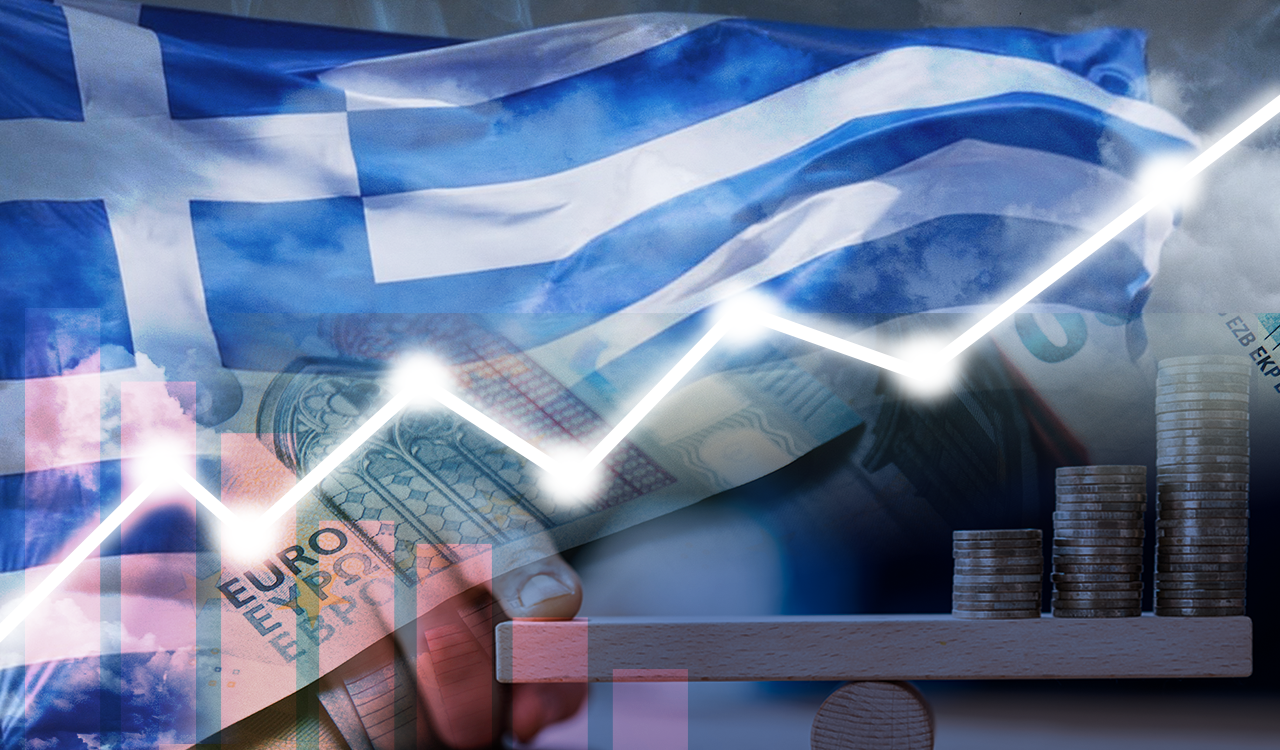
The next economic staff of the government is expected to dive straight into the “deep” (even if someone remains from the previous administration), as there are a number of critical issues, which will concern the Greek economy, until the end of 2023. What is certain is that any issues will be dealt with in the light of the restoration of fiscal rules from 2024, which were “relaxed” during the pandemic and will remain so until the end of 2023. After all, within the next period the Commission is expected to arrive at the new framework of the Stability and Development Program.
Completion of the negotiations in Europe is timed by analysts for the autumn, so the new government and the new finance minister will be called upon to negotiate the new targets for fiscal results and for the level of the primary surplus as a percentage of GDP.
The debate is absolutely crucial, as four years into the “escape clause”, meaning states are allowed to increase spending due to the pandemic and energy crisis, there should be a return to the standard rules in 2024. For the Greek economy, this translates into recording primary surpluses of 2% of GDP in order to cover debt servicing.
Exorbitant prices, especially in food
A top issue is dealing with rising prices and inflation, especially in food, as they are running at double-digit rates for the 14th consecutive month (May 2023), while they have been on the rise for 24 months, eating away at people’s incomes . It is no coincidence that Greece recorded one of the lowest GDP per capita and one of the lowest indices of actual individual consumption (AIC) in 2022, based on data released by Eurostat.
The AIC index expressed in purchasing power units (PPS) consists of goods and services actually consumed by households, regardless of whether they are purchased and paid for by households directly or by government or non-profit organizations. The AIC per capita can also be considered as an indicator of the material well-being of households. Greece was ranked in the last category of the EU, with an index of real individual consumption below 80% and more specifically 78%, compared to the European average, while the GDP per capita was 32% below the European average, and the third worst performance across the EU.
GDP and tourism
The increase in GDP is also an important issue. It is also pointed out that Greece showed a decrease of 0.1% for the first quarter of the year (on a quarterly basis), although on an annual level there was an increase of 2.1%. However, this is a performance below the threshold of the annual target of 2.3% provided for by the Stability Program and in any case worse than what the economic staff of the New Democracy government expected, which also “leaked” for an increase in GDP even more than 3% in 2023.
It is worth noting that the above took place in a quarter, in which tourism recorded a much better course than the corresponding first quarter of 2022. As it turns out, it will be important where the “ball” of tourism will sit for this year, with the surrounding atmosphere to indicate that many professionals are not as happy as they initially were. For Greece, the main weakness of the first quarter is found in investments, where the growth rate was limited to 1% compared to the previous quarter. Growth in consumer spending was also small, at 1.4% quarter-on-quarter.
Investments
There are also challenges in terms of investments. Foreign direct investment (FDI) hit a 20-year record in 2022, reaching 7.22 billion euros, according to data from the Bank of Greece, but to a large extent this concerns takeovers or privatizations of already existing businesses, as well as the purchase of real estate (even real estate from funds). Thus, the creation of new productive investments (greenfield investments) still constitute a small percentage of total investments.
Specifically, according to data from the Governor’s Report 2022 of the Bank of Greece, of the total of 7.220 billion euros of FDI in 2022, 2.3 billion euros (a percentage of 31.8%) related to mergers and acquisitions. But 1.975 billion euros (percentage of 27.3%) concerned the purchase of real estate. The purchase of new shares, representing the creation of new productive investments or participation in share capital increases, accounted for 1.979 billion euros (27.4% of the total). Therefore, as many analysts maintain there should be a shift to much more productive investments.
The balance
Beyond that, the fact that the current account deficit remains at a very high level is particularly negative, as it may cause major problems for the Greek economy, especially in an environment of lower growth. The balance of payments deficit from 2.9% of GDP in 2018 and 1.5% of GDP in 2019, climbed to 6.8% in 2021 and shot up to around 10% in 2022 (close to €20 billion) Partly this the jump was due to higher fuel prices and the rapid recovery of GDP losses due to the pandemic. As the governor of the Bank of Greece has repeatedly pointed out, a balance deficit “maintained above 4% of GDP in the medium term is in conflict with the control of the macroeconomic imbalances of the European Union”, which is also shared by the European Commission. After all, it is recalled that all four European countries that entered into a memorandum in addition to Greece (Ireland, Portugal, Cyprus and Spain) were facing this issue.
It is worth pointing out that the risk involved in widening the current account deficit was also pointed out by the report of the European Commission, following the conclusions of the reports published in the framework of the European Semester. It is recalled that in the report, the Commission points out that although the peak of the deficit for 2022 is due to the increase in the prices of energy, food and raw materials that we had in 2022, the Greek current account deficit, although it will deescalate as a percentage of GDP from 9.7% in 2022, to 7.3% for this year and to 6.4% in 2024, it will remain among the highest within the EU! According to Eurobank, the deficit will decrease from 9.6% of GDP (the calculation method is different compared to the Commission) to 7% of GDP this year, while the National Bank in its recent analysis predicted a deficit this year of 6.5 % of GDP and then, after 2024, further decline to 4% of GDP.
Investment grade
Reacquisition of the investment grade is also desired. Greece is expected to proceed with the acquisition of the investment grade after the elections, being the only country in the European Union that is rated lower than investment grade, after losing it about 13 years ago, at the end of 2010. as it appears from analyzes of foreign houses, the issue this is expected to have a happy ending in the coming months.
According to Alpha Bank, the early return to fiscal balance, combined with the estimate to achieve a surplus primary result in 2023 and the rapid de-escalation of the debt-to-GDP ratio by 35 percentage points in the last two years, contribute significantly to the achievement of investment grade, possibly even in 2023. Greece is one step away from investment grade in the ratings of Fitch, S&P and DBRS, while the timetable for the examination of the Greek economy by the rating agencies begins on September 8 (DBRS). On September 15, we have the second rating from Moody’s. On October 20, the second evaluation by Standard & Poor’s will take place. Finally, Greece will be rated by Fitch on December 2.
Recovery Fund
The country expects a lot from the funds of the Recovery and Resilience Fund. Therefore, the new government should “run” the milestones in order for there to be a rapid use of resources for the benefit of the Greek economy. Based on the programming, Greece is expected to make a new official request to the Commission for additional loans of 5 billion by the end of the summer. euros and subsidies of 760 million euros. .
If this is successful, the amount that Greece will receive, together with the funds from the Recovery Fund, increases to 36 billion euros. The amount of 760 million euros can be allocated for investments in the energy sector and in production mainly for private individuals and households, for actions such as, for example, replacing water heaters in homes. According to the timetable set by the European Commission, the member states have the possibility to submit the relevant request until the end of August.
Latest News

German Ambassador to Greece Talks Ukraine, Rise of Far Right & Tariffs at Delphi Economic Forum X
Commenting on the political developments in his country, the German Ambassador stressed that it was clear the rapid formation of a new government was imperative, as the expectations across Europe showed.

Athens to Return Confiscated License Plates Ahead of Easter Holiday
Cases involving court orders will also be excluded from this measure.

Servicers: How More Properties Could Enter the Greek Market
Buying or renting a home is out of reach for many in Greece. Servicers propose faster processes and incentives to boost property supply and ease the housing crisis.

Greek Easter 2025: Price Hikes on Lamb, Eggs & Sweets
According to the Greek Consumers’ Institute, hosting an Easter dinner for eight now costs approximately €361.95 — an increase of €11 compared to 2024.

FM Gerapetritis Calls for Unified EU Response to Global Crises at EU Council
"Europe is navigating through unprecedented crises — wars, humanitarian disasters, climate emergencies," he stated.

Holy Week Store Hours in Greece
Retail stores across Greece are now operating on extended holiday hours for Holy Week, following their Sunday opening on April 13. The move aims to accommodate consumers ahead of Easter, but merchants remain cautious amid sluggish market activity.

Green Getaway Ideas for Easter 2025 in Greece
Celebrate Easter 2025 in Greece the sustainable way with eco-farms, car-free islands, and family-friendly getaways rooted in nature and tradition.

Civil Protection Minister Details Summer Firefighting Plans at Delphi Forum
At the 10th Delphi Economic Forum, Minister of Climate Crisis and Civil Protection Yiannis Kefalogiannis discussed Greece's plans for the upcoming fire season.

How Shops and Markets Will Operate During Easter Holy Week
The Easter holiday schedule has been in effect since April 10, with retail stores open Palm Sunday, and most supermarkets also operating to meet consumer demand for Easter shopping

Why Is the French Aircraft Carrier Charles De Gaulle in Piraeus?
Docking in Piraeus after a four-month deployment in the Indo-Pacific region, the admiral of the aircraft carrier the Charles de Gaulle says, "Greece is our best partner in the Mediterranean."










































 Αριθμός Πιστοποίησης
Αριθμός Πιστοποίησης